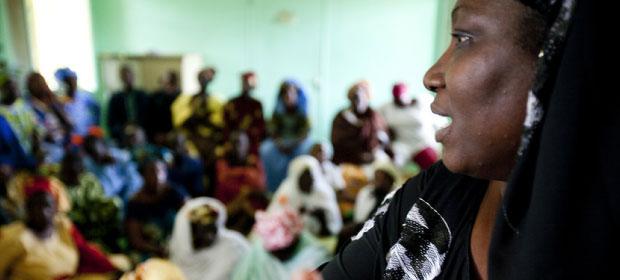Where We Work
See our interactive map


Family planning seems to be on everyone’s minds these days. It’s enjoying a rebirth as the development community focuses on how to integrate family planning into programs and encourage contraceptive use. Family planning is no longer seen as just a women’s issue. It has finally been accepted as it was defined by the International Conference on Population and Development nearly 20 years ago: as an issue of basic human rights.
Over the past year, Melinda Gates and the arrival of the globe’s 7 billionth person jump-started new support for family planning. But how can we keep this momentum going? How can we capitalize on the energy of the global health and development community to ensure that family planning remains in the forefront, and that countries and organizations actually follow through on their commitments to make family planning methods available to women and men around the world?
There’s one pretty easy way to do this—one that Melinda Gates has already started through her work with the Bill & Melinda Gates Foundation. We need to talk about it.
During a recent appearance on NPR’s Wait Wait…Don’t Tell Me!, Gates alluded to the importance of creating a culture in which people can talk openly about family planning—and sex. She reminded listeners that “a billion couples a year have sex, and guess what? One of them is me.”
Each of these couples needs access to modern family planning services. That’s why we need to talk about family planning in every project, proposal, and policy we consider. Family planning affects everyone—men, women, youth—and we need to talk about it like it does.
This summer I get to do just that—think and talk about family planning every day. As a fellow at IntraHealth International, I’m reviewing IntraHealth’s family planning programs in preparation for the third International Conference on Family Planning, which will be held in Ethiopia this November. One thing has come through loud and clear in reviewing programs implemented both by IntraHealth and by other health organizations—our efforts to integrate family planning into every possible health care interaction is beginning to make a difference.
Talking about family planning, in any culture, begins to de-stigmatize it and encourages open, frank discussions. I have seen projects at IntraHealth that have integrated family planning into multiple services that women are already using, including children’s nutrition weeks, immunization visits, postnatal care, and fistula services. Integrating services not only saves time for clients and often overburdened health workers by addressing multiple health needs in one visit; it also ensures that women in cultures that don’t fully accept family planning do not bear the stigma of seeking it out.
One of the best ways to make sure these topics get the attention of the media and the general public is to get politicians onboard. We’ve seen this time and time again around the world. By championing specific projects, politicians effectively raise awareness and advocate for resources and policy change. IntraHealth worked to get politicians and country governments involved as key supporters of the 2011 Ouagadougou conference, and continues to work with local civil society organizations on family planning advocacy in several Francophone West African countries.
In West Africa only 9% of married women use a modern method of contraception. But local organizations and their advocacy efforts can change attitudes about family planning in their communities and countries, and ensure policies are enforced once they’re put into place. Donor organizations such as the Bill and Melinda Gates Foundation and the Hewlett Foundation have recognized the need to focus on these countries if we want to see worldwide change.
The rebirth of family planning has come at a time when the world has a large population of youth. Seventy percent of Africa’s population is under the age of 30. And you can be sure they’ll work to make their voices heard.
Young people who have their entire reproductive lifespans in front of them need access to family planning information and contraceptive methods that meet their needs now and as they grow older. Arming youth with knowledge and messages that they can shout from the rooftops will only bolster family planning in their communities. And young people can begin their own revolution by demanding access to contraceptives.
So let’s help them to use their voices. As they age, these young populations will become the majority constituency of voters. By making their concerns about the right to family planning known early, they can already support leaders who uphold their right to choose if and when to start families.
So let’s keep talking about it. Make family planning a part of every conversation. It’s a right, a method, and a discussion that we must have—openly and honestly—at every stage of life.
—Katelyn Bryant-Comstock
IntraHealth UNC Fellow
Get the latest updates from the blog and eNews




